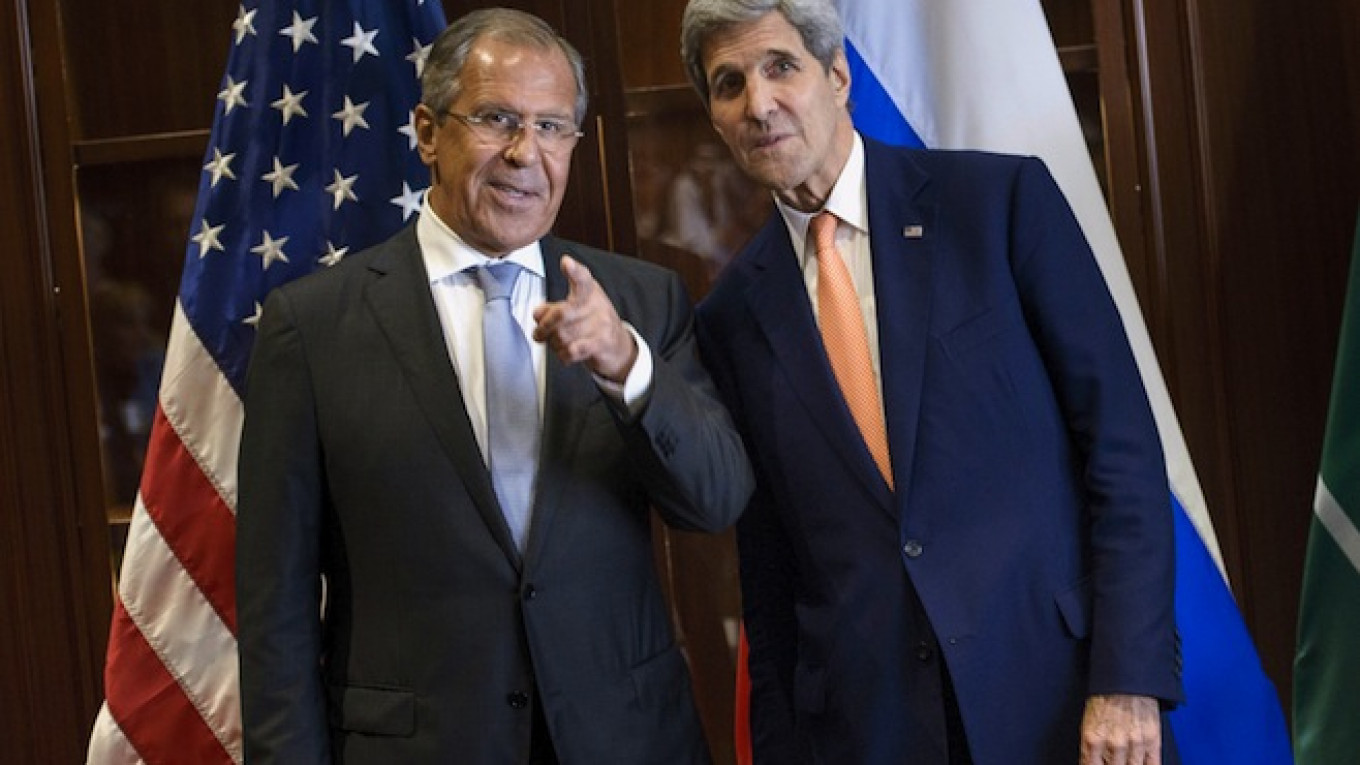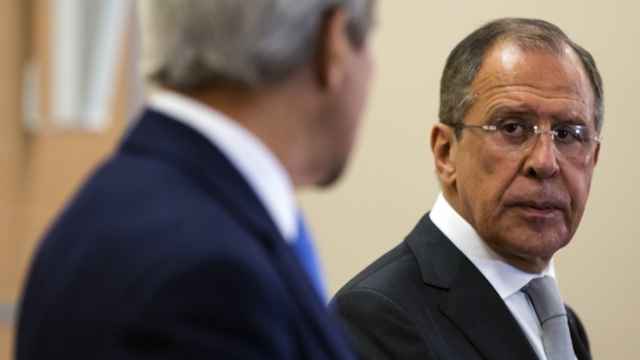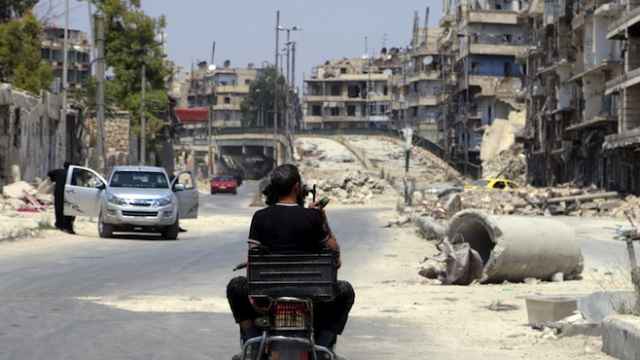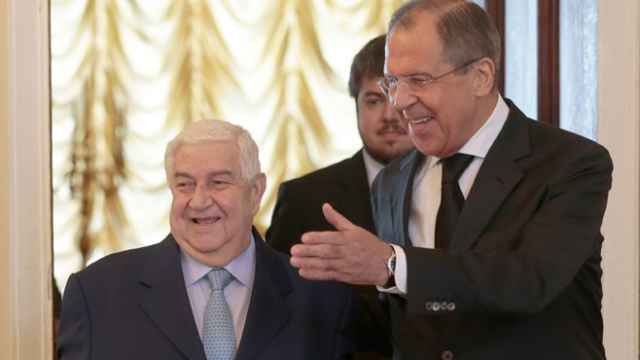KUALA LUMPUR / MOSCOW — Russia and the United States have not been able to agree on a common approach to fighting the Islamic State, Foreign Minister Sergei Lavrov said on Wednesday, after his second meeting with U.S. Secretary of State John Kerry in recent days.
"We all agree that Islamic State is the common threat, common evil. We agree that we need to join efforts to fight this phenomenon as soon and as effectively as possible," Lavrov said in comments carried by Russian state TV from Malaysia.
"For now we don't have a joint approach on how specifically we can do it given the standoff between various players on the ground, including armed units of the Syrian opposition."
Lavrov added that he and Kerry had agreed officials from both countries would continue to work to find a common strategy for fighting the Islamist militant movement.
A senior U.S. State Department official said the two had also discussed the Ukraine conflict and what steps needed to be taken to fully implement the Minsk agreement calling for a cease-fire between Ukrainian forces and pro-Russian separatists.
Kerry and Lavrov, in Malaysia for meetings of the Association of Southeast Asian Nations, held trilateral talks on the war in Syria with Saudi Foreign Minister Adel al-Jubeir in Qatar on Monday.
Russia has been trying to bring about rapprochement between the Syrian government and regional states including Saudi Arabia and Turkey to forge an alliance to fight Islamic State militants who have taken large amounts of territory in Syria's civil war.
Kerry met Turkish Foreign Minister Mevlut Cavusoglu in Kuala Lumpur on Wednesday afternoon and welcomed Turkey's recent decision to open its bases to U.S. air operations against Islamic State fighters and its support for Syrian refugees.
The senior State Department official said Kerry also reiterated U.S. commitment to promoting conditions for a negotiated settlement to end the conflict in Syria.
At the beginning of their meeting, Cavusoglu was asked by a reporter when there would be an effective moderate Syrian opposition force in a buffer zone in northern Syria that Turkey and the United States aim to establish.
"Now we are training and equipping the moderate opposition together with the United States, and we will also start our fight against Daesh very effectively soon," he said, referring to the Islamic State.
"Then the ground will be safer for the moderate opposition that are fighting Daesh on the ground."
The State Department official said that at the Qatar meeting Kerry, Jubeir and Lavrov "acknowledged the need for a political solution to the conflict and the important role to be played by opposition groups in reaching that solution."
In calling for wider international cooperation to fight the Islamic State, Russia says gains on the ground by the ultra-radical jihadist group meant even those who oppose Syrian President Bashar Assad should now join ranks with Damascus to fight the common enemy.
The Russian Foreign Ministry said on Tuesday that the formation of a "wide anti-terrorist front" had been one of the main themes of the Kerry-Lavrov-Jubeir talks.
Syrian Foreign Minister Walid al-Moualem arrived in Tehran on Tuesday for talks with officials from Iran and Russia that were expected to focus on efforts to end the civil war.
Iran and Russia have stood by Assad, providing military and financial support during more than four years of conflict. The United States and some of its Gulf Arab allies have said Assad must leave office.
World powers led by the United States reached a nuclear agreement with Iran on July 14, but both sides have made it clear that the deal will not change their policies in the region.
A Message from The Moscow Times:
Dear readers,
We are facing unprecedented challenges. Russia's Prosecutor General's Office has designated The Moscow Times as an "undesirable" organization, criminalizing our work and putting our staff at risk of prosecution. This follows our earlier unjust labeling as a "foreign agent."
These actions are direct attempts to silence independent journalism in Russia. The authorities claim our work "discredits the decisions of the Russian leadership." We see things differently: we strive to provide accurate, unbiased reporting on Russia.
We, the journalists of The Moscow Times, refuse to be silenced. But to continue our work, we need your help.
Your support, no matter how small, makes a world of difference. If you can, please support us monthly starting from just $2. It's quick to set up, and every contribution makes a significant impact.
By supporting The Moscow Times, you're defending open, independent journalism in the face of repression. Thank you for standing with us.
Remind me later.






